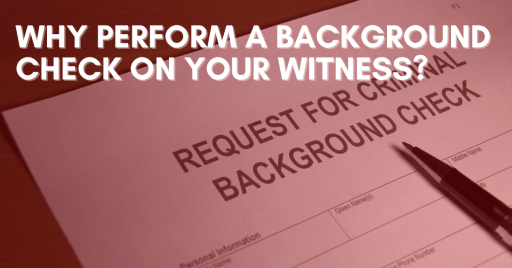Does the court check witness background?
Here’s a more detailed explanation:
<<< Criminal History: >>>
In many jurisdictions, evidence of a witness’s prior criminal convictions can be introduced to the court, particularly if the crime involved dishonesty or a felony. This is done to allow the fact-finder (judge or jury) to assess the witness’s credibility.
<<< Expert Witness Background: >>>
When an expert witness is involved, their background, including their professional qualifications, experience, and any prior testimony they have given, is often scrutinized. This helps the court determine if the expert is qualified to testify on the subject matter and if their testimony is reliable.
<<< Due Diligence: >>>
Attorneys often perform their own background checks on witnesses before trial to identify any potential issues that could be used to impeach their testimony. This helps them prepare for cross-examination and anticipate any challenges to the witness’s credibility.
<<< Factors Considered: >>>
Courts may consider a witness’s past criminal record, employment history, educational background, and any other relevant information that could affect their credibility or bias.
<<< Not Always Required: >>>
While courts can check witness backgrounds, it’s not always automatic. In many cases, it’s up to the parties involved (prosecution or defense) to conduct their own investigations and present evidence of a witness’s background if they believe it’s relevant.
<<< Prejudice vs. Relevance: >>>
When considering evidence of a witness’s past criminal record, the court must weigh the probative value of the evidence (how much it helps to determine the witness’s credibility) against the potential for prejudice (how much it might unfairly influence the jury against the witness).

